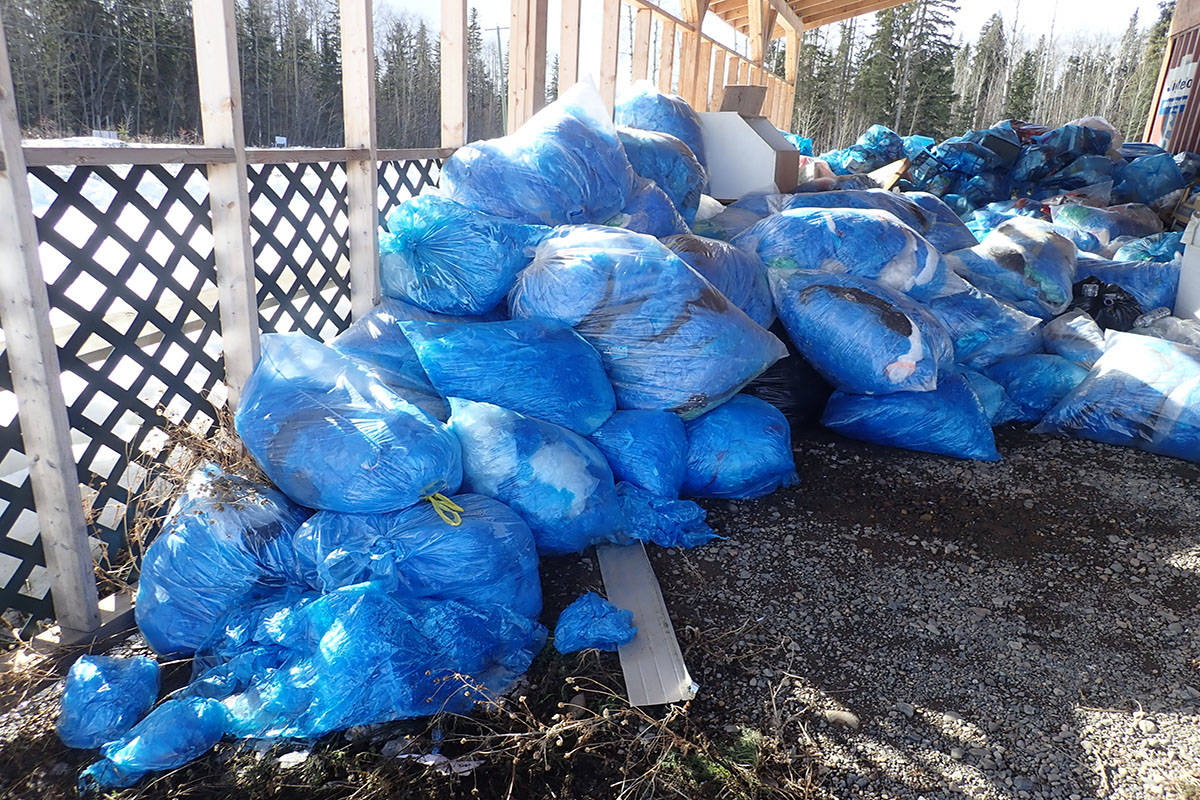Albertans are paying twice for their recycling services.
This news was provided to Ponoka News after questions of the town’s contractor, Green For Life (GFL) announced it is unable to collect plastics with the recycle symbol #3 to #7.
Lindsay Seidel-Wassenaar, representing RCA, said one issue is that there isn’t a strong market for certain types of plastics, plus the #3 to #7 streams contaminate the #1 and #2 streams.
“Your one and twos are the ones that get you the most money if you’re marketing them,” explained Seidel-Wassenaar.
“Nobody wants mixed plastic.”
One of the challenges in Alberta is that sorting facilities are not advanced enough to deal with the different types of plastics. Those plastics that are #3 to #7 are now being sent to the landfill.
Looking at Alberta’s recycling program, the province is behind the rest of the country, explained Seidel-Wassenaar. “That’s mainly because we don’t have a legislation called Extended Producer Responsibility (EPR).”
What this does is put the onus of ensuring recycling is managed by the producers of packaging. “The producer is responsible for the end of life of the product.”
In British Columbia for example, Seidel-Wassenaar said residents don’t pay for a recycling program in their communities.
“(They) pay for that when (they) buy the product,” said Seidel-Wassenaar, adding that the cost is a fraction of a penny.
Poll: Tell us what you think. Should manufacturers be responsible for the end of life of their products?
National pricing rates
It appears there is a national pricing mandate for packaging in Canada, which means Albertans have already paid to recycle the products they buy.
“And yet we (Albertans) do not have EPR,” said Seidel-Wassenaar.
Shedding some light on this topic was Christina Seidel, executive director for the RCA.
“Essentially in Alberta we are paying for service we are not getting,” said Seidel.
In 2009, the Canadian Council of Ministers of the Environment (CCME), a report dubbed A Canada-Wide Strategy for Sustainable Packaging deals with this very issue.
“The purpose of the Canada-wide Strategy for Sustainable Packaging is to build on the Canada-wide Action Plan for EPR to help create a more consistent Canada-wide approach to EPR for packaging and to support a shift by all packaging actors towards greater packaging sustainability,” states the executive summary.
While the RCA hasn’t been able to confirm the actual cost of the programs from manufacturers, she pointed out that the pricing is the same across the country. Again, using British Columbia as the example, unless there’s a higher-end program for recycling, it is subsidized by manufacturers.
The City of Vancouver has completely done away with a municipal recycling program.
Albert Shamess, director of waste management and resource recovery for the city, confirmed in an email that British Columbia requires producers to be responsible for organizing and paying for recycling operations.
Ensuring that services are provided is Recycle BC.
“Their approach was to either hire a contractor to do the collection or pay a municipality to do it if the municipality wanted to continue providing the service,” explained Shamess in an email.
“We didn’t make manufacturers handle it, rather we chose to let Recycle BC deliver the service and pay for it rather than the city,” he said, adding that the transition went rather smoothly.
Alberta municipalities on the hook
Communities in Alberta are left having to pay for a service that residents appear to already pay.
The only province that doesn’t have EPR legislation for this type of service is Alberta.
“Municipalities are essentially left on the hook to provide those programs, and they pay for them,” stated Seidel.



